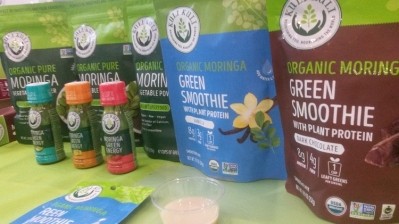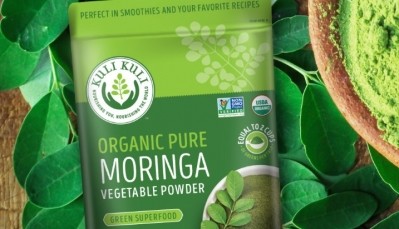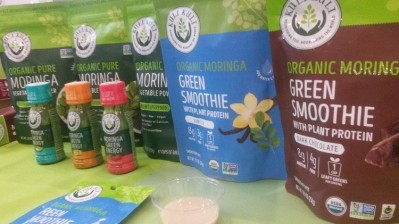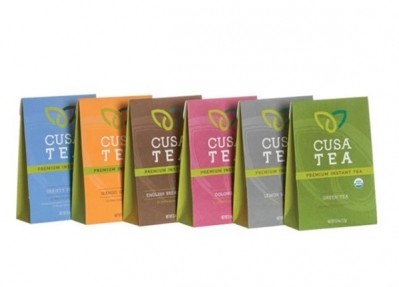Moringa alive and well: Kuli Kuli Foods' explosive growth since Kellogg $4m investment brings 'superfood' to broader audience
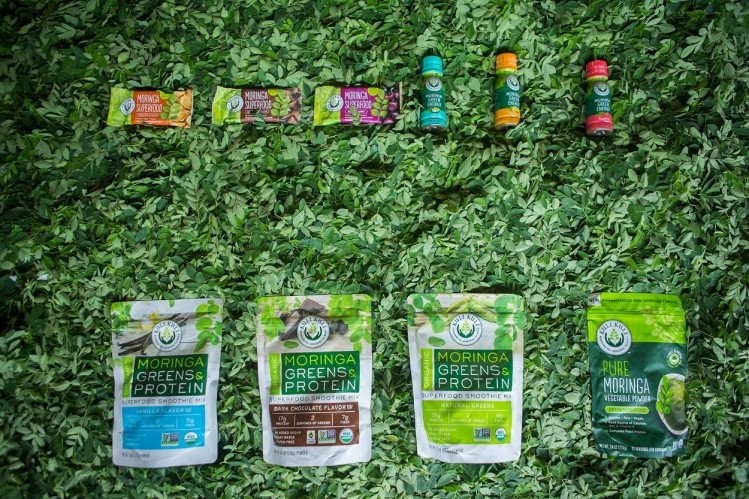
Prior to partnering with Kellogg, Kuli Kuli already had a strong presence in the natural channel via distribution in 445 Whole Foods stores throughout the US.
The Kellogg Company’s venture fund eighteen94 was launched in June 2016 to invest in companies “pursuing next-generation innovation” giving Kellogg access to “cutting edge ideas and trends”. Kuli Kuli Foods was the fund's first investment.
“My goal has always been for moringa to be a tool to improve nutrition and livelihood worldwide. And I think of that as improving the livelihood in the communities where we source from but also doing that here in the US,” Kuli Kuli founder and CEO, Lisa Curtis, told FoodNavigator-USA.
“We really used all of the series A money to focus on doors and turns, so getting more points of distribution and making sure that that product is really moving off the shelf and into people's shopping baskets."
Kuli Kuli uses moringa, a nutrient-rich green plant that thrives in hot, dry climates such as West Africa and parts of South America, as the main ingredient in a number of products including superfood bars, powder, herbal tea, and energy shots.
Startup to powerhouse
Founder Lisa Curtis (left) learned about moringa as a Peace Corps volunteer stationed in the West African country of Niger. "I did a little research and was just really taken aback by the idea that there is a tree that is so nutritious and it thrives in hot dry places that grows well in countries that often have higher rates of malnutrition."
Gram for Gram Nutrition: A gram of moringa contains two times the protein of a gram of yogurt, four times the vitamin A of carrots, four times the calcium of milk, and seven times the vitamin C of oranges, the company claims.
As a scrappy startup, Kuli Kuli started out of Curtis’s home kitchen before moving into a commercial kitchen to make its moringa bars in 2014. “We were testing them out at farmer's markets and then generally we would go to a co-manufacturer and work with them to scale the product development process up for manufacturing, but we never had the budget to hire a professional formulator,” she said.
According to Curtis, there was investor interest outside of Kellogg before they decided to partner with the major packaged foods company.
“We ended up picking Kellogg because they promised to add a lot of value beyond just the capital,” she said.
The cash infusion from Kellogg last year helped it improve and professionalize its product formulation process since they now had access to more R&D expertise.
“They (Kellogg) worked with us to do a full renovation and reformulation on our bars and they helped us use all natural ingredients like chia seeds and cacao nibs,” Curtis said.
The updated bars will be available in May and Kuli Kuli is also working with Kellogg’s R&D team to launch a “Green Smoothie Mix” moringa protein powder this July.
Farmer network, empowering women
Kuli Kuli’s farmer network is growing every week, reaching over 1,000 farmers in eleven countries, according to Curtis.
“We partner directly with farmers and we provide them with a guaranteed purchase,” she said, meaning that the company will always buy 100% of their farmers’ moringa yields.
With the funding from Kellogg, Kuli Kuli was also able to hire someone fully devoted to coaching farmers on how to get their moringa farms organic certified and up to US standards.
Kuli Kuli also strives to bring as many women into its supply chain operations as possible and develop a culture of empowering women.
“We require that all of our suppliers have women in leadership positions,” she said. “We don't always get the full 50/50, but we do ask that there is gender equality and we're constantly encouraging to find ways to bring more women into their operation.”
More superfood plants to come?
After building and continually improving its supply chain around the nutrient-rich moringa plant, Kuli Kuli Foods wants to bring more novel superfood-type ingredients to the US.
“We think we could introduce other unique superfoods into our product line and do it in a way that allows us to deepen our existing relationships with our farmer network and potentially even allow for more regenerative agriculture practices with other plants that they can intercrop and we can source from those too,” she said.
According to Curtis, moringa is “naturally regenerative” because as a perennial tree it can be grown year round and its leaves grow back every three months allowing for multiple harvests.
"I think there is a beautiful possibility of us starting to look at other nutrient rich plants and how we can sell them not as a commodities but as value-added branded products," Curtis added.


